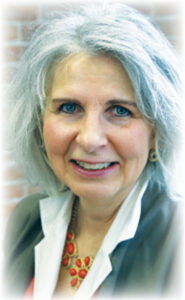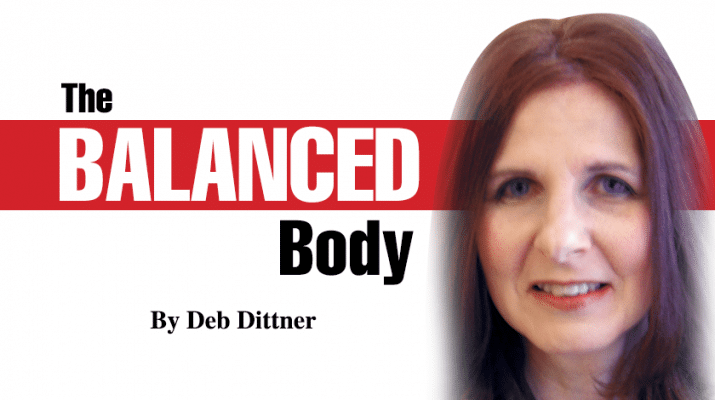Golden years — what does that actually mean?
By Deborah Dittner
 Back in the day, people looked at the later years of one’s life as being full of free time to do whatever you please, retire from the job you held for decades. sleep in late, travel, plant a garden, play with grandchildren and more.
Back in the day, people looked at the later years of one’s life as being full of free time to do whatever you please, retire from the job you held for decades. sleep in late, travel, plant a garden, play with grandchildren and more.
Is this reality or wishful thinking?
Long gone are the days of pension plans and living off previous savings. The economy seems to change from day to day questioning what tomorrow may bring.
Still many are living well into their 80s and 90s. Because of financial changes and the overall changes to the environment on many levels in which we all live, planning your life to live long, strong, joyful and fulfilled may be a challenge. There is much work to do to keep all functions moving forward.
First and foremost, you need to take care of the temple — you.
Lifestyle interventions can help you create the life you desire one step…one day at a time.
I know I’ve said this a million or so times before but you need to focus on whole nutrient-dense foods for nutrition.
Eating combinations of fat, fiber and protein at every meal will keep you satiated and provide vital nutrients for your wellbeing.
As you age, you may require more protein (some research recommends at least 100 grams of protein a day) to help build muscle. Protein sources are eggs (choline from the yolk also aids in brain function), wild-caught fish and vegetables such as Brussels sprouts, artichokes, green peas, potatoes, broccoli, spinach, kale, mushrooms and asparagus. Foods rich in fiber will aid in digestion, help stabilize blood sugar levels and keep you satisfied longer after your meal. Fiber comes from beans, vegetables, fruits and whole grains. Healthy fat (avocado, wild-caught fish, coconut oil, nuts, and olive oil) will aid in healing and circulation.
Proper hydration is important for good digestion, kidney health and boosting immunity. Especially in winter months, you may not feel as thirsty and therefore not drink enough water. Every morning, fill a large pitcher with the amount you need to drink and throughout the day enjoy a refreshing glass until you empty the pitcher. Drink more during the day than in the evening to try to eliminate trips to the bathroom during sleeping hours. Your body is made up of more than 70% water so it’s important to replace fluids lost in sweating and elimination.
Physical movement on a daily basis is essential for healthy and comfortable golden years. Walking 8,000 steps within your daily routine of doing household chores, running errands and working will help promote heart health. To this movement, add in weight training and resistance movement. Start small by lifting cans of soup or bottles of water and build up. Having hand weights or kettlebells at home will allow you to pick them up whenever you fancy instead of having to go to a gym. Some may need, especially in the beginning, the direction from a personal trainer so that you can be led to the appropriate movements that your body specifically needs and will not cause any harm. Challenge yourself by lifting weights or kettlebells until your muscles become fatigued. Being strong and having a healthy muscle mass will support you in those golden years. Yoga is another great option as there are many different practices including chair yoga.
Incorporate gratitude into your daily living. No matter what your circumstances, there is always something to be grateful for. Gratitude journals can be used to write down approximately three things you are grateful for and why. This can be done in the morning on awakening or before retiring at night. Don’t want to write them down? That’s alright too. You can sit quietly and give thanks to a good night’s sleep, a nourishing meal, sunrise or sunset…limitless possibilities.
Find your community and connect. Research has shown that those with strong social connections live longer, happier and healthier lives. Coffee dates, walking dates, movie dates or gym dates…all add up to social connection. No need to isolate yourself when there are many just like you in need of a good conversation, good cup of coffee or just plain old together time.
Seven to nine hours of good quality sleep is a key part of the regenerative, aging and healing process. Sleep helps to boost the immune system, keeps you more alert, allows your body to make necessary repairs, improves mental and memory health and decreases stress. If sleep is an issue, there are lifestyle interventions which may be of help. An important one is to avoid the use of electronic devices as these are stimulating and will not allow for a restful night’s sleep.
“Love is all you need” as is said in a famous Beatles song. Love heals by providing emotional support for body, mind and soul. Showing loving kindness to a neighbor in need, a friend or family member creates a certain love within yourself. Love shows caring (of oneself or others), providing positive states of emotion with dedication and trust. Respect, being kind, listening without judgment, creates happiness and well-being deep inside.
Through these lifestyle interventions and practices, you can take the steps needed to enjoy the Golden Years in the best possible ways. I encourage you to explore the many possibilities and create a life that you desire.
 Deborah Dittner is a family nurse practitioner and health consultant. Her mission is to transform as many individuals as possible through nutrition and lifestyle changes. www.debdittner.com
Deborah Dittner is a family nurse practitioner and health consultant. Her mission is to transform as many individuals as possible through nutrition and lifestyle changes. www.debdittner.com

